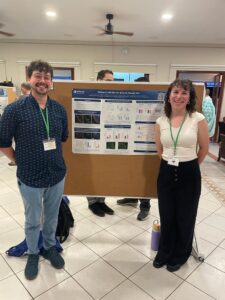Anne Londregan

The Role of Neuropod GUCY2C in Visceral Pain
Abstract
 Visceral pain (VP) affects >10% of the global population, with complex etiologies and limited therapies. Guanylyl cyclase C (GUCY2C), an intestinal receptor driving enterocyte secretion, is a therapeutic target for VP. FDA-approved GUCY2C agonists ameliorate VP in Disorders of Gut-Brain Interactions (DGBIs) with constipation, although analgesic mechanisms are undefined. Uroguanylin, the hormone that activates GUCY2C, is lost in these syndromes. Further, GUCY2C is enriched in rare neuropod cells in intestine that synapse with nociceptive nerves. We propose a unifying pathophysiological hypothesis in which DGBIs reflect uroguanylin loss silencing GUCY2C in enterocytes, with constipation, and neuropod cells, with VP, ameliorated by oral agonist replacement. The correlative therapeutic hypothesis suggests that GUCY2C signaling can be amplified selectively in neuropod cells, vs enterocytes, reflecting differential gene expression to create combinatorial treatments for VP without diarrhea.
Visceral pain (VP) affects >10% of the global population, with complex etiologies and limited therapies. Guanylyl cyclase C (GUCY2C), an intestinal receptor driving enterocyte secretion, is a therapeutic target for VP. FDA-approved GUCY2C agonists ameliorate VP in Disorders of Gut-Brain Interactions (DGBIs) with constipation, although analgesic mechanisms are undefined. Uroguanylin, the hormone that activates GUCY2C, is lost in these syndromes. Further, GUCY2C is enriched in rare neuropod cells in intestine that synapse with nociceptive nerves. We propose a unifying pathophysiological hypothesis in which DGBIs reflect uroguanylin loss silencing GUCY2C in enterocytes, with constipation, and neuropod cells, with VP, ameliorated by oral agonist replacement. The correlative therapeutic hypothesis suggests that GUCY2C signaling can be amplified selectively in neuropod cells, vs enterocytes, reflecting differential gene expression to create combinatorial treatments for VP without diarrhea.
I am excited to receive the PhRMA Foundation fellowship for my research on identifying new therapeutic targets for visceral pain. Beyond financial support, it connects me with fellow scientists dedicated to drug discovery and translational research.

